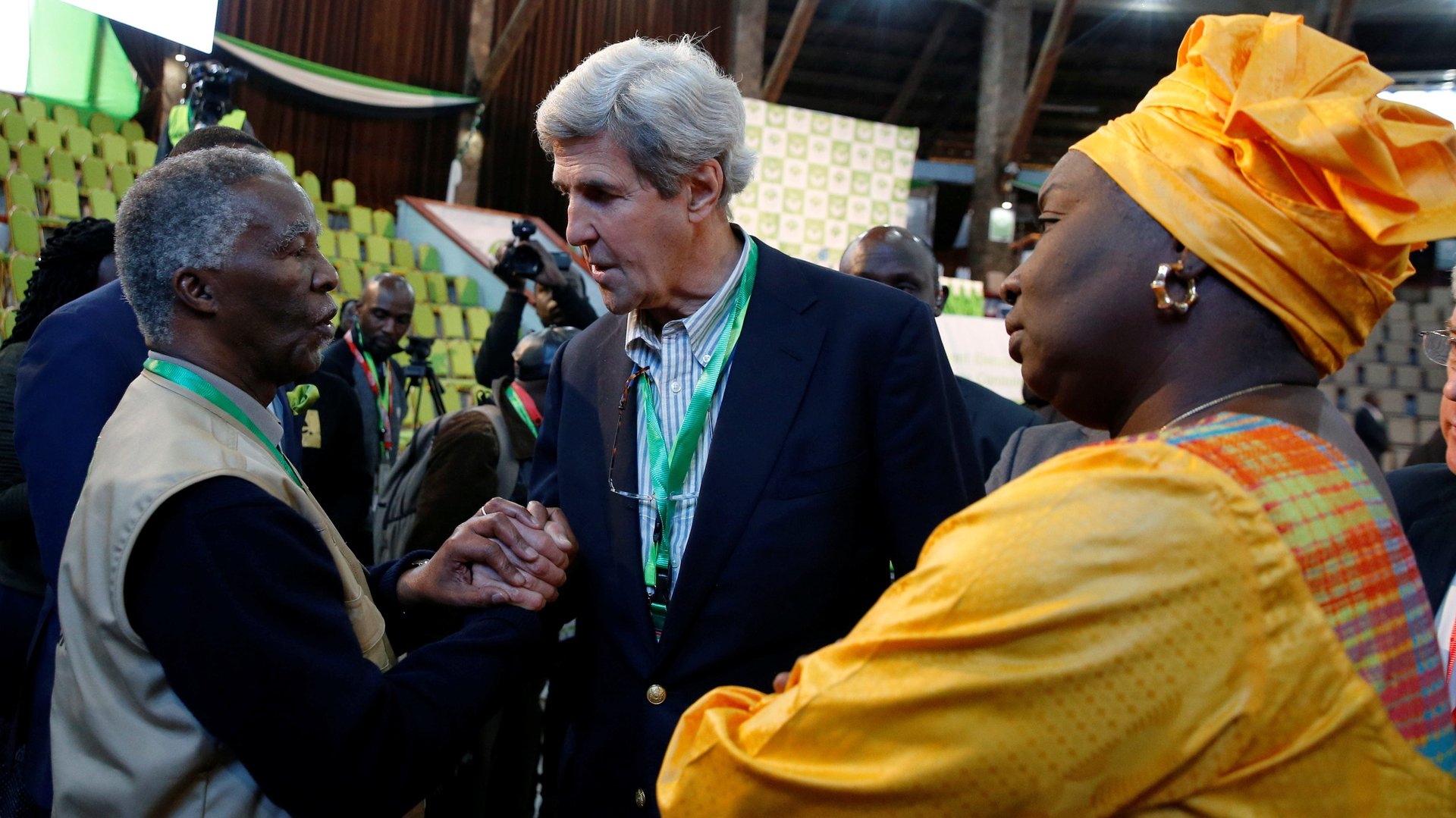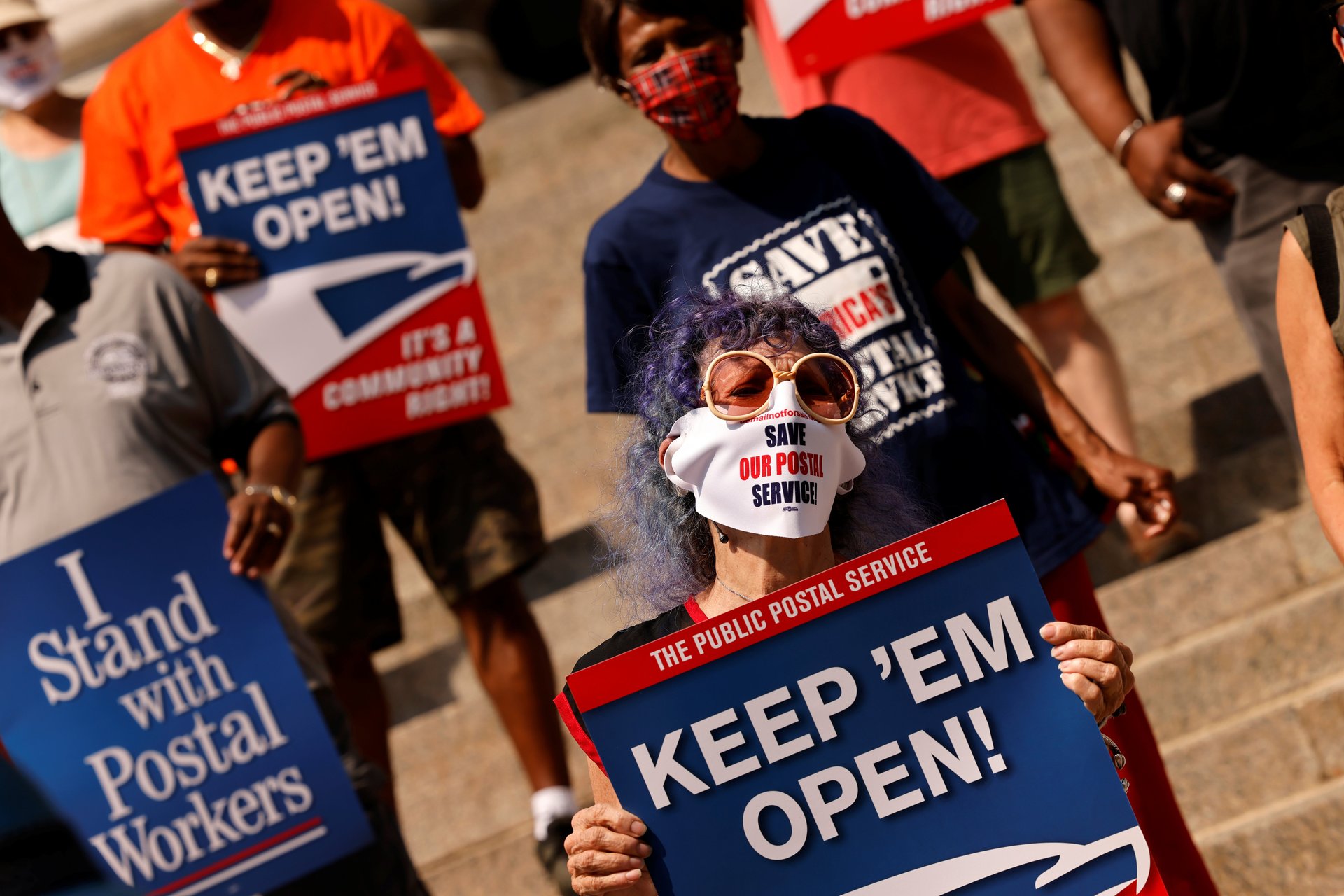The US has championed democracy in Africa for decades, now its own problems show a need for humility
“Now, finally, in our own country…” Karen Bass, chair of the US House Foreign Affairs subcommittee on Africa, had a wry smile and sighed during her committee’s Sept. 30 hearing discussing “Democratic backsliding in Africa.”


“Now, finally, in our own country…” Karen Bass, chair of the US House Foreign Affairs subcommittee on Africa, had a wry smile and sighed during her committee’s Sept. 30 hearing discussing “Democratic backsliding in Africa.”
Many long-time Washington DC foreign relations insiders have been worried about how the US, a champion of democracy around the world, has been losing its moral authority as the US’ own democratic processes have appeared to buckle and be severely tested over the last year in the run-up to Tuesday’s US elections.
Bass started her speech reeling off a long list of African countries including Tanzania, Côte d’Ivoire and Guinea among others where the US is worried about their weakening democratic processes. But the Democrat from California, was unequivocal about the seriousness of the problems at home and why she feels it matters. “The world is watching us and we can’t conveniently become an excuse for others backsliding.”
The US 2020 elections which come to a close on Tuesday (Nov. 3) have been surrounded by confusion and suspicion over the last year exacerbated by the devastating impact of the Covid-19 pandemic. Americans have had to quickly come to terms with changes in their traditional voting processes which has allowed for even more uncertainty about everything from the concerns about the US Postal Service and mail-in voting to early voting misinformation and voter suppression.

It’s the kind of thing for which the US has typically deployed election observers to African countries and other developing regions. But perhaps for the first time there are questions about US credibility as the singular great advocate for democracy around the world.
However there’s an opportunity for the US to reset with some humility and acknowledge that all democracies continually evolve, says Judd Devermont, the director of the Africa program at the Center for Strategic and International Studies and a former Africa-based intelligence officer under the Obama administration till early under Trump. “In the past we’ve talked as an exemplar, but our troubles over the last few years give us a chance to say to our African partners that we’re on this journey together.”
America’s role in supporting African democracy has lost a bit of shine in recent years, notably in Kenya’s 2017 elections when US election observers, led by former US secretary of State, John Kerry, gave the first polls a clean bill of health even as they were bitterly disputed by the opposition all the way to the country’s top court where the results were annulled. And there’s nothing to say African countries are unable to resolve their own democratic challenges, as seen in Malawi where the top court over-turned the result for irregularities for its May 2019 elections and ordered a re-do which took place peacefully in June this year.
Regardless of how the US elections play out the world’s largest economy will still have a huge influence on democracy around the world especially in Africa. It has both the carrot and a big stick to its advantage notes W. Gyude Moore, a senior fellow at the Center for Global Development and a former Liberian government minister.
“US sanctions still carry significant bite and its ability to deny use of its financial system can still cripple any economy,” says Moore. “But any role for the US in African democracy will increasingly become marginal and it would not be out of the ordinary for actors in African democracies to look less and less to the US for direction or support.”
Most of the African interest about the state of American democracy and its impact has been from civil society organizations and less from African governments who rarely comment on other African elections much less the US. And while there may be consensus in the US its democratic process is going through a rough patch, not everyone agrees it is a significant problem for its standing as a democracy advocate.
“I don’t think the overall perception is fair and has been bit overwrought,” says Joshua Meservey, senior Africa policy analyst, Heritage Foundation, a conservative think tank, with close links to the Trump White House. “Even though the US has had some struggles, by any objective measure its democratic institutions are still carrying on.”
And indeed despite perceptions to the contrary, the US is still making clear its position on supporting democracy. Last Friday (Oct. 30), for example, the ranking member of the US Senate foreign relations committee, senator Bob Menendez, slammed Tanzania’s controversial presidential elections from a few days earlier.
“The Magafuli regime has made it clear it is hostile to the democratic norms and values Tanzanians had come to enjoy,” said the New Jersey Democrat in a statement. “The United States must stand with the people of Tanzania, and fundamentally re-think its engagement with the Magafuli administration.”
Sign up to the Quartz Africa Weekly Brief here for news and analysis on African business, tech, and innovation in your inbox